A Musical-Historical Project
Hearing Memory tells the story of a forgotten East German avant-garde, asking how an overlooked cultural history might inform our political present.
Hearing Memory
Saturday, October 28, 2023
National Sawdust, New York City
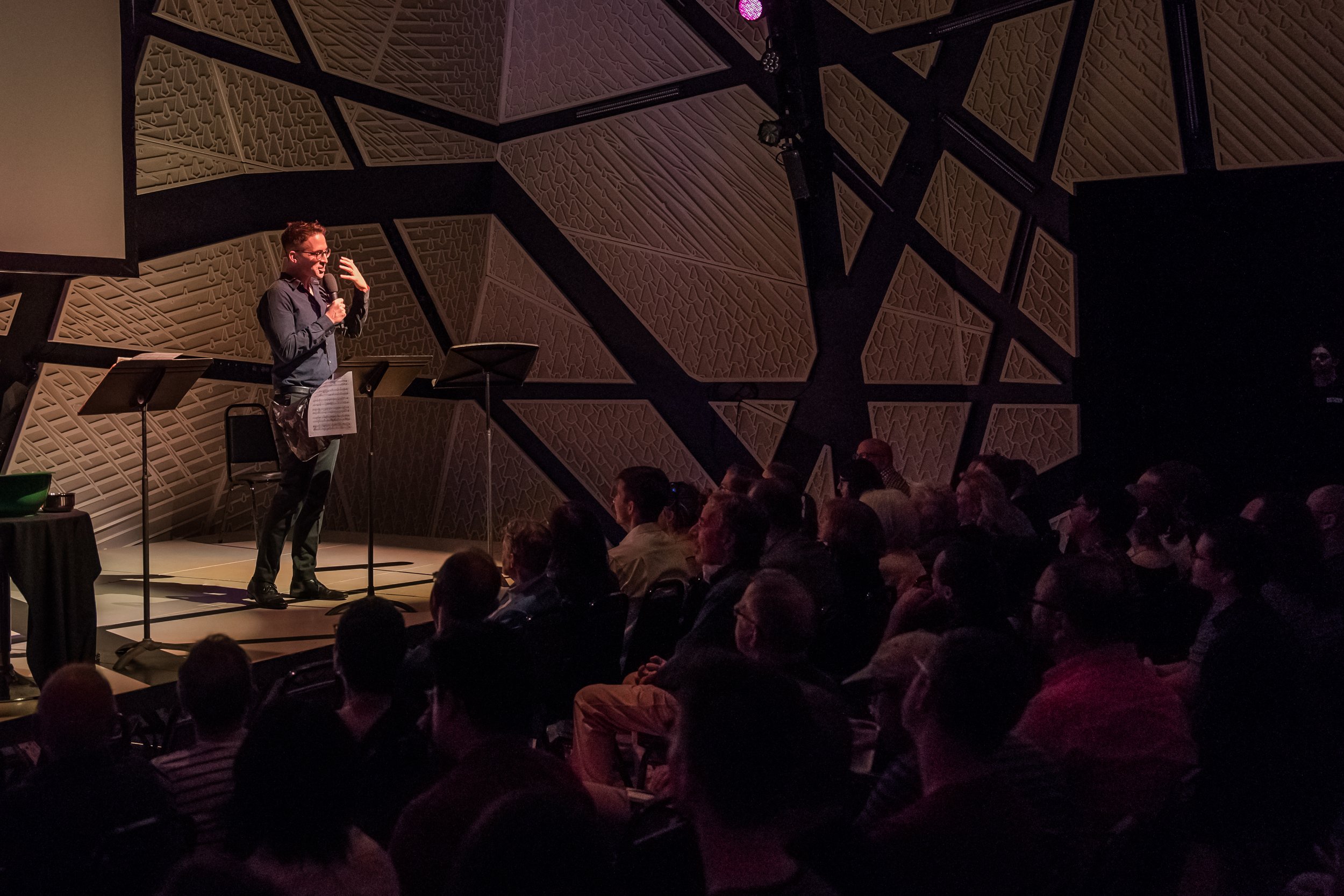
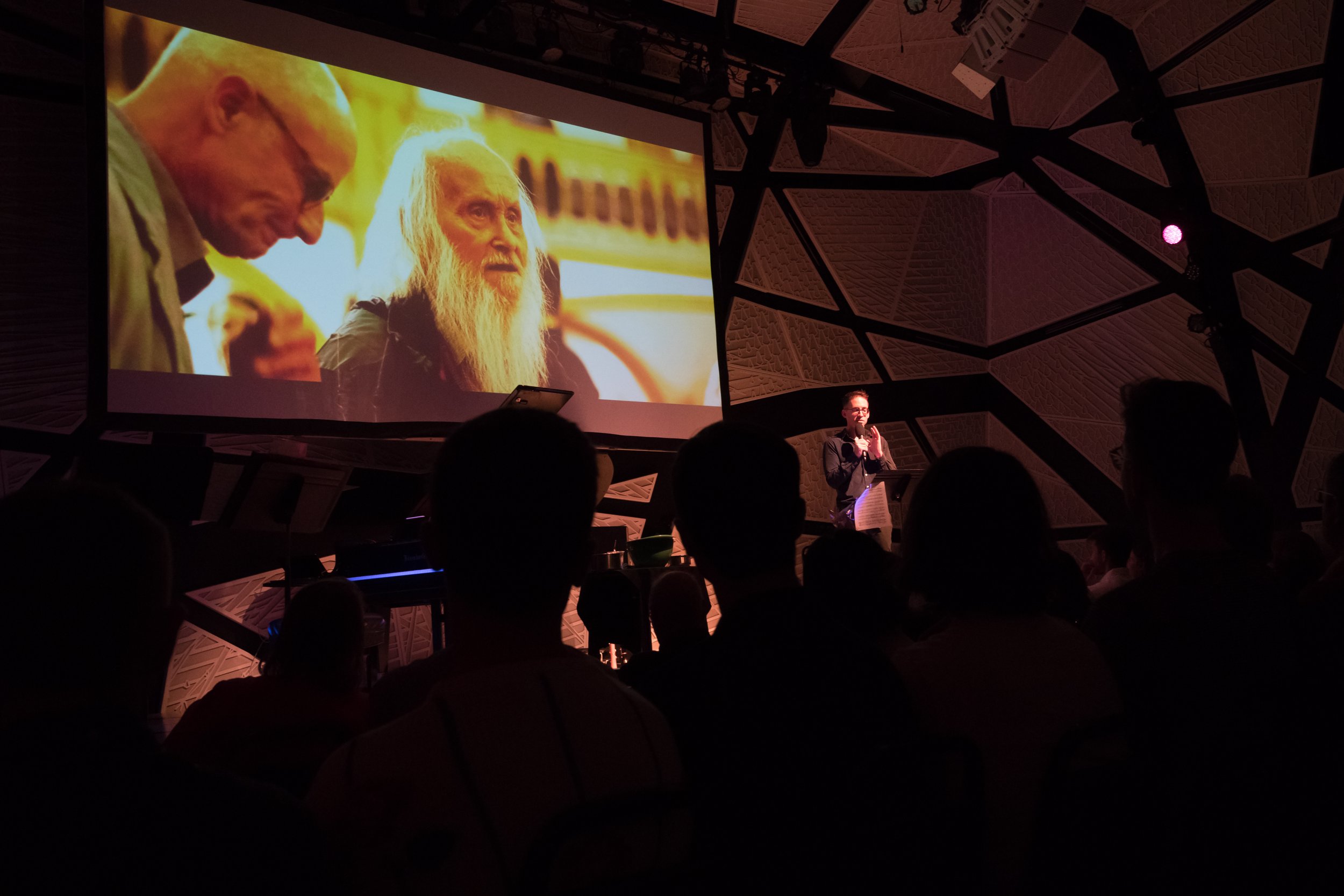
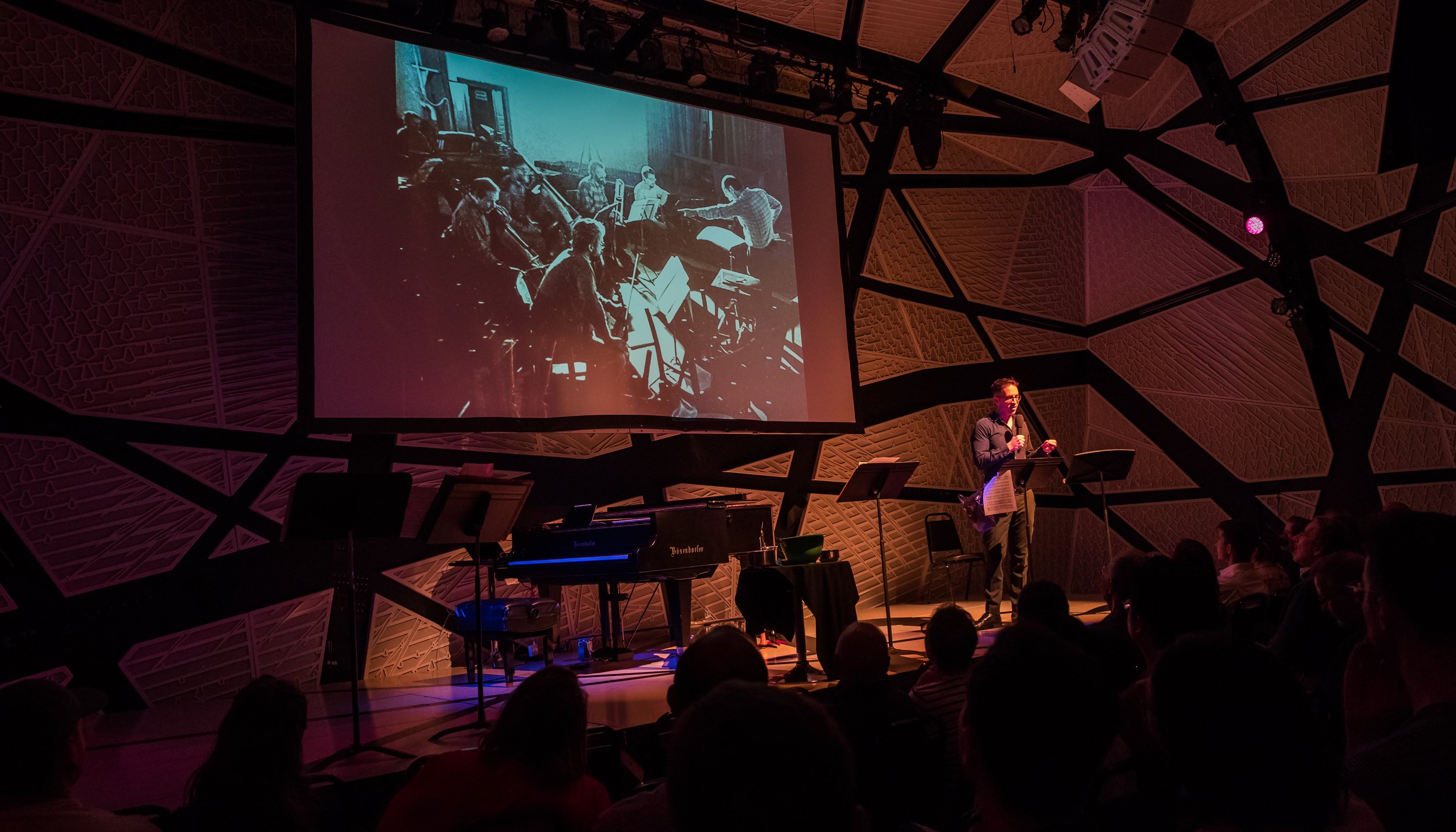
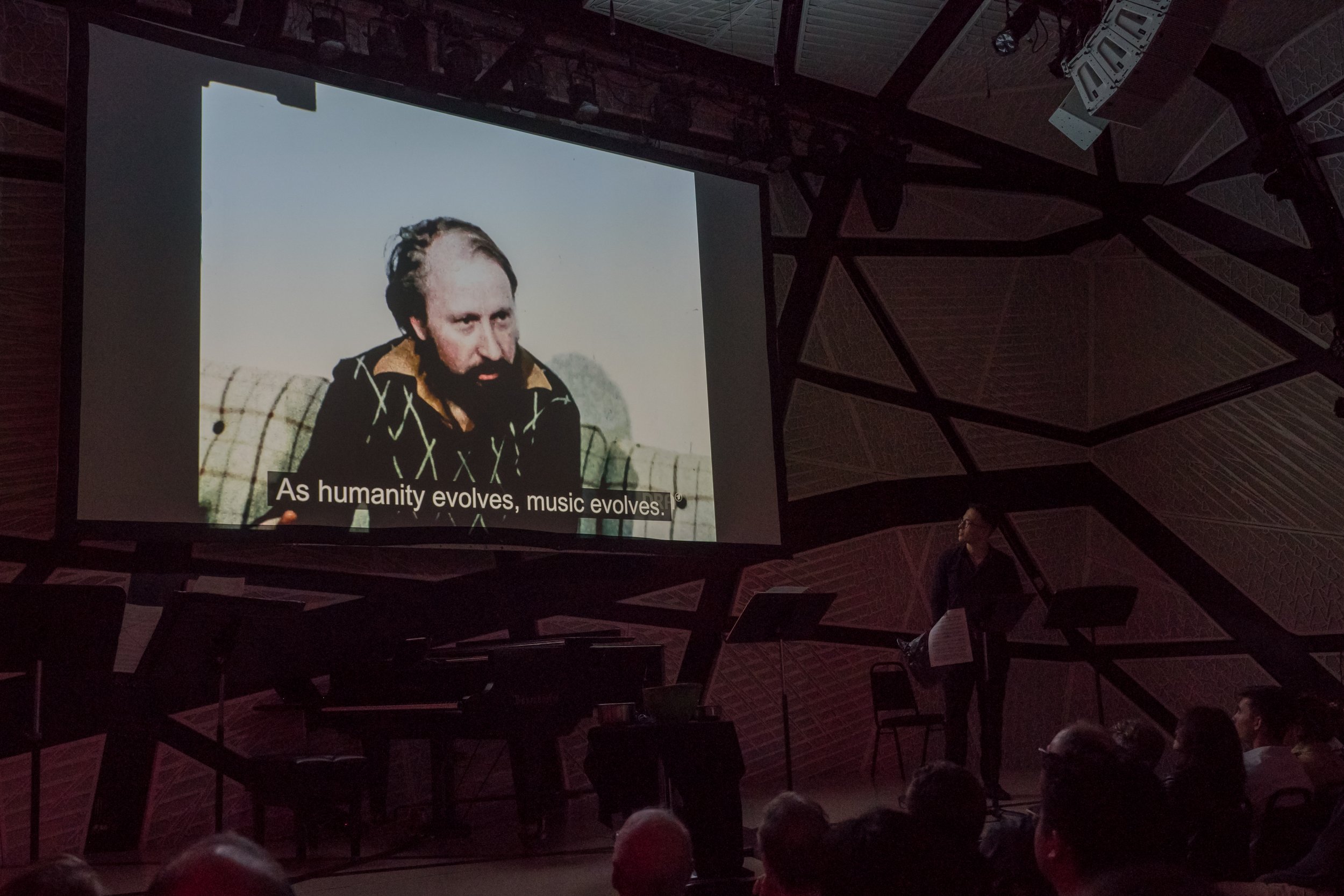
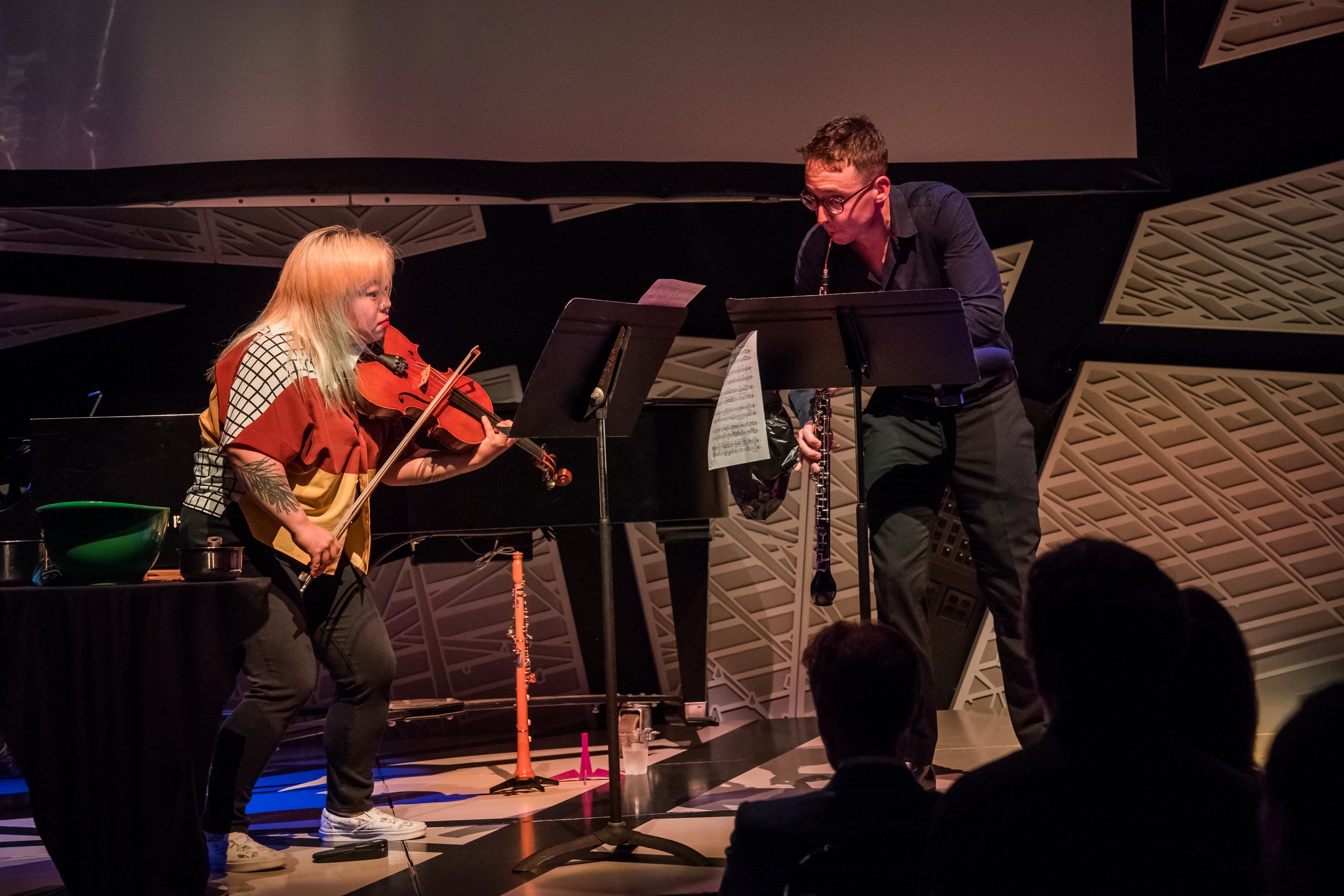
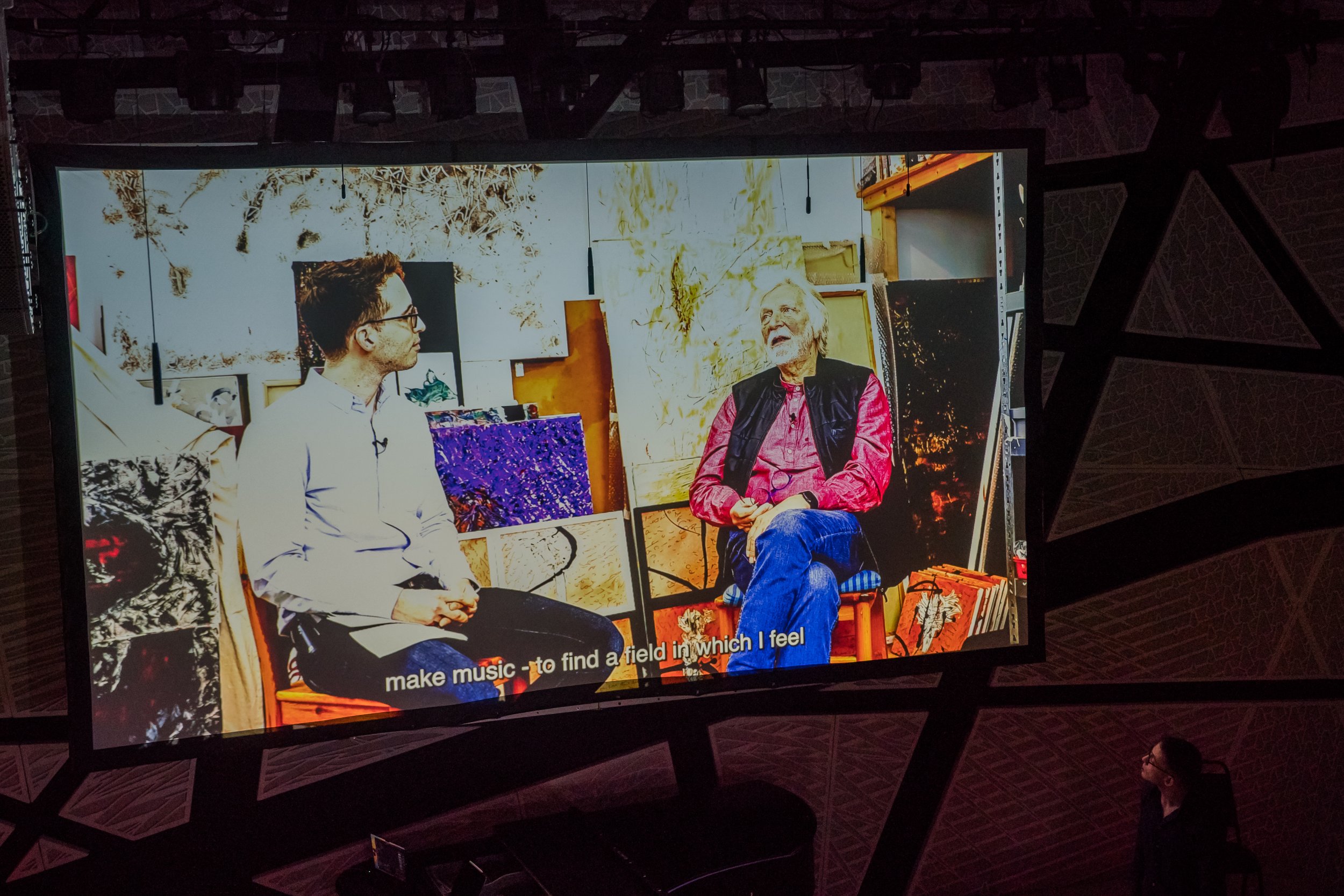
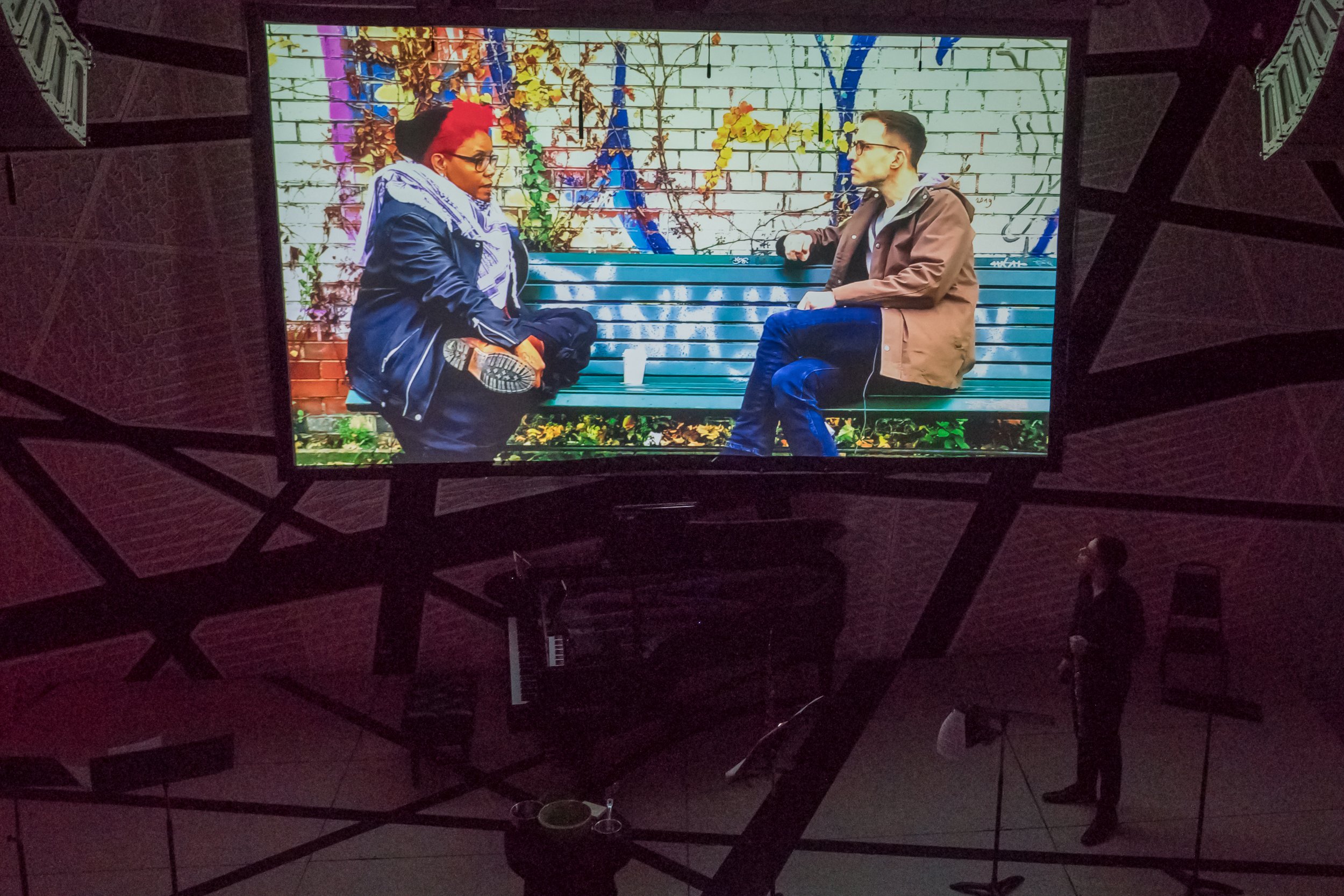
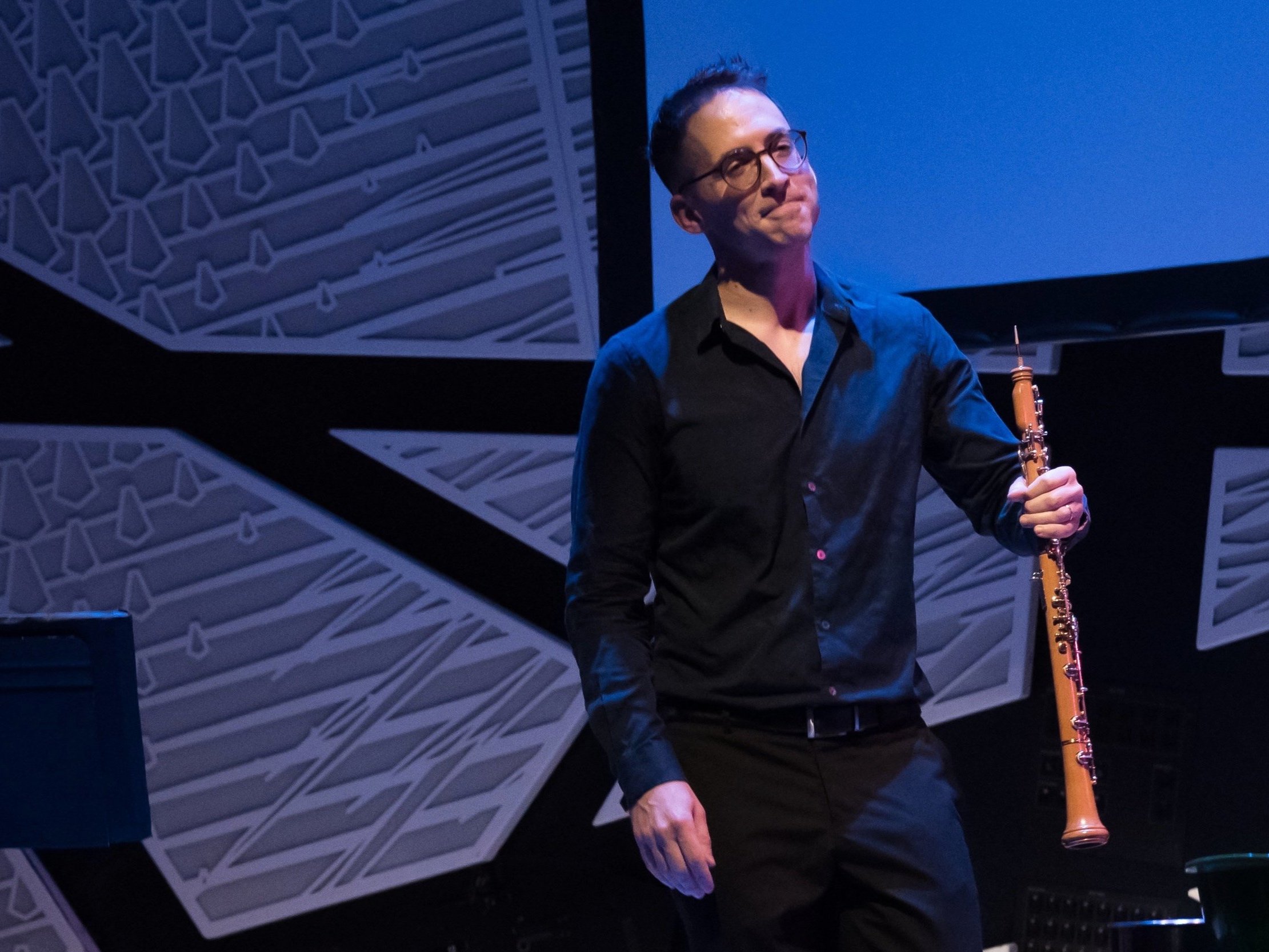
Photos Courtesy of Jill Steinberg
In 1949 East Germany became a country, in 1990 it disappeared. East Germany was a single-party, Communist dictatorship that imprisoned and terrorized its citizens; for the tens of millions of East Germans who lived throughout its four brief decades, it was also home. In the years since German reunification, much of East German history has lived in the shadows of the ‘end of history’. The Soviet satellite state was indeed illegitimate, but its citizens - their customs, their traditions, their celebrations, their art, their music - were not.
Classical music held a special place in East German society - it provided the state legitimacy in its history (as the home of Bach, Händel, Schütz, among others) and in its exceptionally high performance standard (among the best in the world). For artists, much like athletes, music was a lifeline, one of the few permissible ways to breach the country’s fortified borders and experience the broader world; being a musician held great value in East Germany.
In the 1970s a collection of musicians from the Leipzig Radio Orchestra - interested in contemporary music, eager for a musical life beyond their daily orchestral work, in search of artistic and personal license - founded the Group for New Music Hanns Eisler. Led by oboist Burkhard Glaetzner and trombonist/composer Friedrich Schenker, they created a body of avant-garde classical music, composed largely by their East German composer colleagues, that would electrify their fellow Leipzigers and ultimately send them throughout Europe, albeit as ambassadors of the very state in which they were imprisoned.
Below: Glaetzner, Schenker and members of the Group for New Music Hanns Eisler | Bottom: Friedrich Schenker and Burkhard Glaetzner
Their style was theatrical, provocative, daring; their approach was rigorous. The group created an aesthetic that sat uncomfortably with the authorities and yet was too abstract to penalize. They shaped an avant-garde that moved people to attend, often simply for the opportunity to be a part of something culturally subversive.
The group dissolved in the early 1990s, their raison d’etre re-contextualized by the emergence of a free society. Their work, alongside their extensive repertoire, has since largely been forgotten. As an increasing number of western countries face rising (in some places now governing) far-right movements, the story of this East German avant-garde has gained new relevance. As artists have become increasingly politicized, we have been forced to examine the efficacy of our work, to question our broader relevance within society. The experiences of these intrepid musicians navigating their complicated late 20th-Century reality offer insight into how we - musicians and audiences alike - might navigate our own.
Burkhard Glaetzner in Conversation, November 2021
Hearing Memory has been made possible by grants from the Stony Brook University Faculty for Arts, Humanities and Social Sciences and the German Academic Exchange Service (DAAD). Special thanks to Bernd Franke, Burkhard Glaetzner, Ingo Goritzki, Siegfried Thiele, Sebastian Katzer, Christfried Schmidt, Christian Wetzel, Konrad Stöhr, Philip Lamß, Marten Hahn, Marius Roux and Anthony Roth Costanzo.

